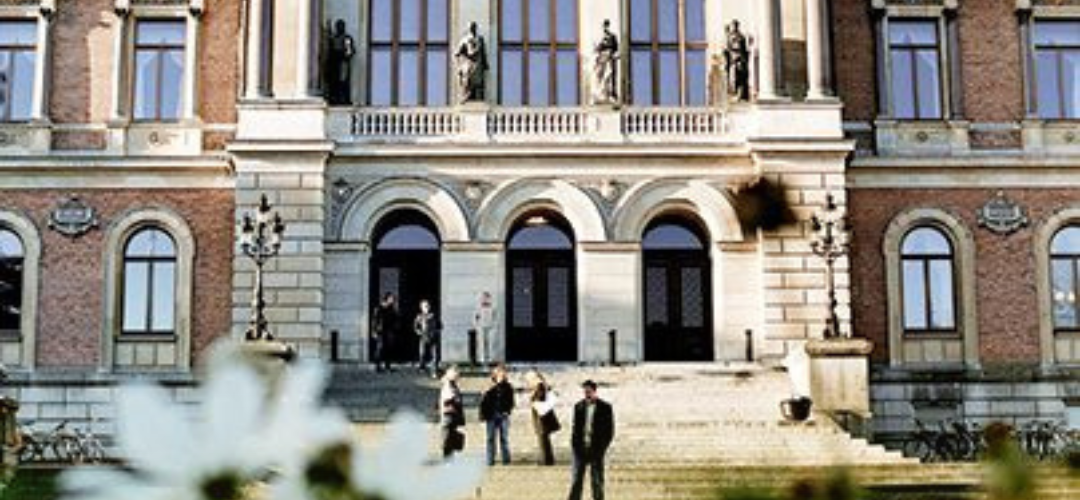Career Prospects After Studying in Scandinavia

Scandinavia—home to Sweden, Norway, Denmark, Finland, and Iceland—offers more than just stunning landscapes and a high quality of life. The region delivers world-class education, innovative teaching, and a unique cultural experience that attracts students from around the globe. For those who pursue their studies here, Scandinavia opens the door to outstanding career opportunities across diverse fields.
In this article, you’ll explore the career pathways available to students after completing their education in Scandinavia and learn how the region equips graduates for success on a global scale.
Experience a World-Class Education System
Scandinavian universities rank consistently among the best in the world. These institutions focus on academic excellence, practical training, and cutting-edge research. Professors encourage critical thinking, creativity, and teamwork—skills that employers value worldwide.
The education system avoids rote learning. Instead, students engage in real-world problem-solving, group projects, and interdisciplinary learning. With programs in English and global recognition, graduates from Scandinavian institutions enter the workforce with a competitive edge.
Unlock the Advantages of Studying in Scandinavia
Studying in Scandinavia gives you far more than a degree. Here’s what makes the region stand out:
- High Academic Standards: Institutions maintain rigorous curricula that combine theory with practice.
- English-Taught Programs: Most courses use English, attracting a diverse international student body.
- Strong Research Environment: Universities offer abundant opportunities to join groundbreaking research projects.
- Work-Life Balance: You’ll study in an environment that values balance, mental well-being, and personal growth.
- Cultural Exposure: Students immerse themselves in a rich, progressive, and multicultural society.
Find Career Opportunities Across Scandinavia
Graduates who want to stay in Scandinavia discover a thriving job market across key industries:
🌐 Technology & IT
Cities like Stockholm, Copenhagen, and Helsinki lead Europe’s tech innovation. Tech firms hire software developers, data analysts, cybersecurity experts, and AI specialists. The startup culture remains strong, with government support and active tech communities.
⚙️ Engineering
Scandinavia excels in engineering, especially in renewable energy, mechanical design, and infrastructure. Governments and private firms invest heavily in sustainable technology, creating roles for engineers who want to shape the future.
💊 Healthcare & Life Sciences
With world-class research institutions and advanced healthcare systems, the region offers careers in biotechnology, pharmaceuticals, and medical research. Graduates from related fields find positions in both public hospitals and private companies.
💼 Business & Finance
Scandinavia provides a stable economic climate, excellent governance, and a flourishing financial sector. International firms and banks in cities like Oslo and Stockholm seek skilled graduates in business administration, marketing, and economics.
Start Your Own Venture: Embrace Entrepreneurship
Scandinavia encourages innovation. Graduates with entrepreneurial ambitions receive extensive support from incubators, accelerators, and funding programs. Cities like Stockholm and Helsinki offer dynamic startup ecosystems, especially for tech and green ventures.
Universities promote entrepreneurship through dedicated courses, innovation labs, and mentorship programs. Students turn ideas into businesses, often before graduation.
Explore Global Career Pathways
Graduates from Scandinavian universities don’t limit themselves to local job markets. Their globally respected degrees unlock opportunities across North America, Asia, and Europe. Employers value their international exposure, problem-solving skills, and adaptability.
Many graduates find roles in multinational firms, NGOs, and academic institutions. Their time in Scandinavia helps them grow into effective leaders, researchers, and innovators in any global setting.
Build a Future in Academia and Research
If you aim for a research or academic career, Scandinavia offers an ideal foundation. Universities invest heavily in R&D and foster collaboration across disciplines and countries.
You can pursue a PhD or postdoctoral position within well-funded research environments. Labs remain open to international collaboration, and faculty members support new researchers with mentorship and resources.
Navigate the Job Market with Confidence
To thrive after graduation, students must approach the job market strategically. Follow these practical tips to boost your career prospects:
🤝 Network Actively
Use your university connections, attend job fairs, and join alumni events. Build relationships with peers, professors, and local professionals. These networks often lead to job leads, internships, and mentorship.
🛠️ Gain Practical Experience
Participate in internships, part-time roles, or volunteer opportunities. Scandinavian countries allow post-study work visas, enabling you to stay and gain local work experience after graduation.
🗣️ Learn the Local Language
Many companies operate in English, but fluency in Swedish, Norwegian, Danish, or Finnish can unlock more job offers. Language proficiency also helps you connect better with colleagues and integrate into society.
🧭 Use Career Services
Most universities offer robust career support. Tap into workshops, resume clinics, interview training, and job boards to prepare for your career journey. Career counselors guide you in aligning your goals with market demand.
Discover Real Success Stories
Graduates across fields continue to achieve success after studying in Scandinavia. Here are a few real-world examples:
🔬 Anna Svensson – Renewable Energy Engineer
Anna studied Renewable Energy Engineering at KTH in Stockholm. Her passion for sustainability led her to research on solar and wind energy. After graduation, she joined a Danish firm focused on clean energy technology. Anna’s academic background and research experience helped her drive real impact in the green energy sector.
💻 Ravi Kumar – Tech Entrepreneur
Ravi earned his Computer Science degree from Aalto University, Finland. During his studies, he launched a startup using AI to improve healthcare diagnostics. With access to local funding and mentorship, Ravi scaled his business across Europe. His time in Finland shaped his entrepreneurial mindset and tech vision.
🧬 Emily Thompson – Biomedical Researcher
Emily graduated in Biomedical Sciences from the University of Copenhagen. Her dedication to cancer research earned her a PhD opportunity within the same university. Today, she leads a collaborative research project on immunotherapy, contributing to global breakthroughs in healthcare.
Shape Your Future with a Scandinavian Education
Scandinavia empowers students to grow academically, personally, and professionally. The region offers a springboard into a successful career, whether you stay and work locally, launch your own company, or return to your home country with a world-class education.
Graduates gain more than a degree—they carry valuable experiences, international networks, and the mindset to lead in their chosen fields. If you plan to study abroad, consider Scandinavia not just for the quality of education, but for the lifelong career potential it unlocks.
From innovation-driven companies to global research institutions, Scandinavia prepares you for a future filled with opportunity. Pursue your goals here, and you’ll walk out ready to make your mark on the world.













